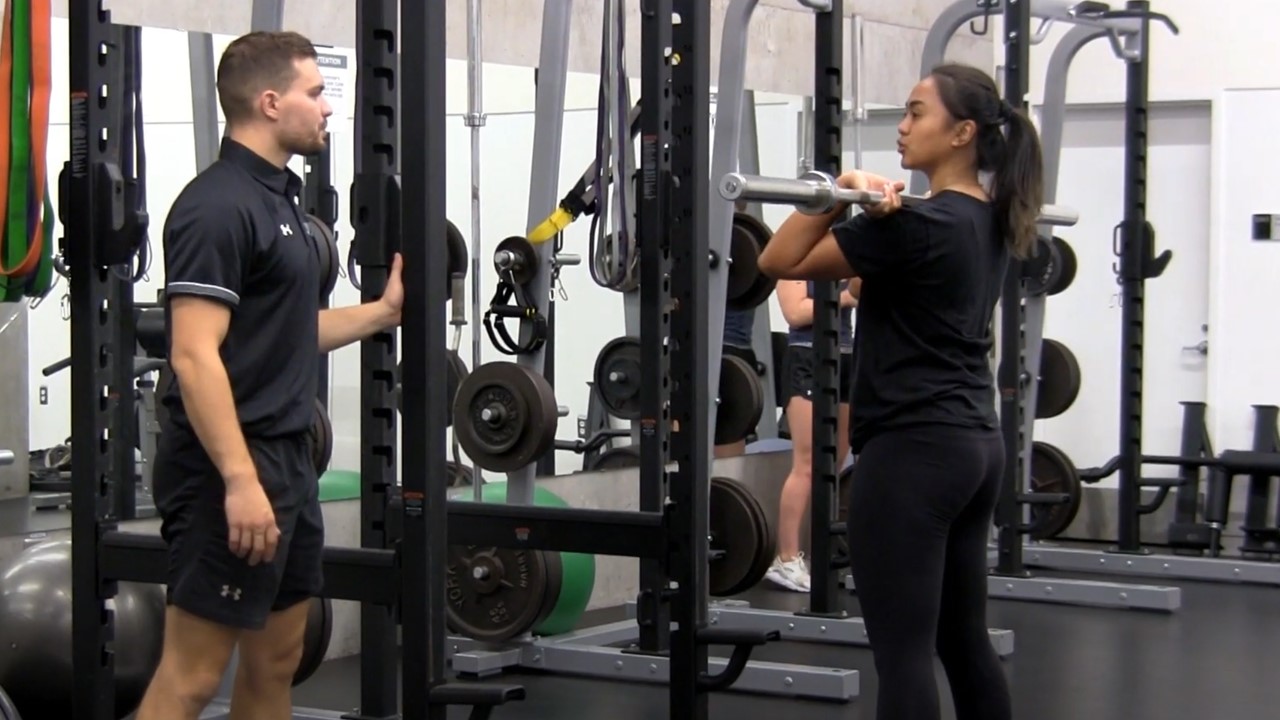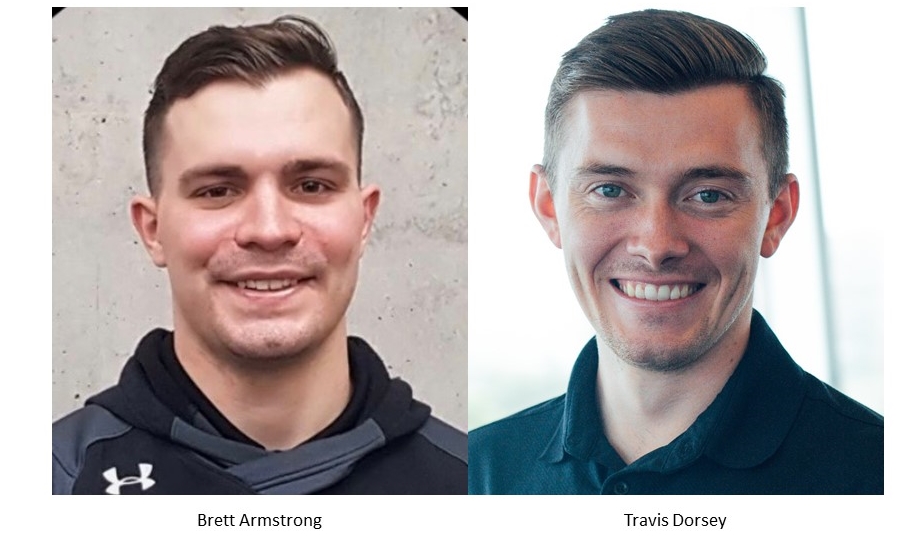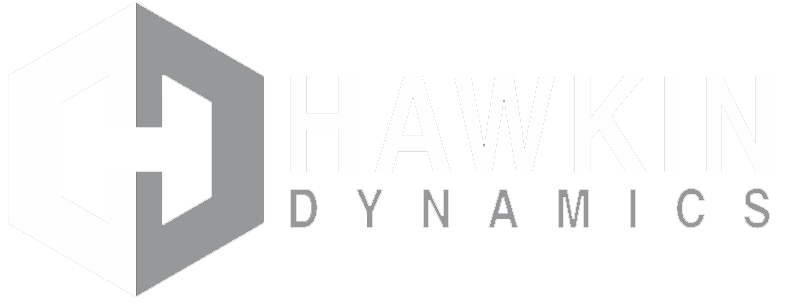Build Passion and Foster Community: An Interview with Dalhousie’s Brett Armstrong

Interview conducted by Travis Dorsey on behalf of the CSCA
CSCA: Why did you start your journey of becoming a strength and conditioning coach? Was there anyone influential in your life to guide you?
BA: I started my journey of becoming a strength and conditioning coach when working as an athletic therapy student intern at Dalhousie. Many of our athletes’ injuries were stemming from chronic overuse, poor exposure to gradual loading, and a need for simple scalable strength progressions.
Soon after my athletic therapy intern experience, I first started working in a Sports Medicine Clinic in Toronto called the Sports Medicine Specialist. At the Sport Medicine Specialist, I assisted Physiotherapists and Strength and Conditioning professionals with return to play, graded loading for plyometrics, and strength training post injury or surgery. When I had the opportunity to work with Dalhousie Athletics in my third year, many of the athletes needed similar regressions and coaching. It was exciting to switch my focus from taping and triaging injured athletes to running warmups, getting into the weight room and working with students who required alternatives, or couldn’t make team times. I felt like I could make a difference in both roles but enjoyed the process and long-term approach of taking an athlete from learn to train, to train to perform.
A very influential mentor of mine has been Andrew Kascor. Andrew hired me at a private facility as a Kinesiology student, I had a good amount of experience working within smaller groups, but really didn’t know how to command a team or coach a large group. Andrew put me in those large group situations and showed me how to keep things simple and realistic. He empowered me to channel my passion for teaching and how much I care about others into coaching, allowing me to become a coach who can communicate effectively and hold athletes accountable.
CSCA: What is your current role? What does this involve?
BA: Currently, I am the Head Strength and Conditioning Coach for eight team sports and the sprints team at Dalhousie University. I work with our first-year athletes to develop foundational programs and introduce many of them to strength training. Our first-year groups can have a wide range of training experience with many athletes having little to no structured background, while others could have a substantial history. This role involves coaching athletes through the academic year, into their summer/spring semester, as well as supporting advanced or high performing athletes who may train with FISU Games teams, Team Nova Scotia, or in the CEBL.
Moving forward we hope to expand our student internship in both the Strength and Conditioning and Sports Science pathways. I’m fortunate to collaborate with our Kinesiology Department to bring initial curriculum alignments with our student interns who are already engaged in coaching university programs.
CSCA: How did you start your role as a strength and conditioning coach at Dalhousie?
BA: I began as an athletic training student intern at Dalhousie and from this previous internship role I was pushed towards joining our Women’s Volleyball program in the weight room. This snowballed from helping athletes in return to play, to coaching the U16 and U18 programs and working with our Kinesiology department, to conducting Force Plate testing on AMTI plates during court sport weight room times. I began to support other sports teams at Dalhousie as an assistant strength coach while maintaining a lead position with a few other teams. In the summer of 2019, I was tasked with the challenge of engaging with student athletes that would usually have poor contact hours and limited access to facilities. Many students stayed in Halifax during that summer and had a great experience of starting a consistent culture of training. Currently, I work to collaborate with our physiotherapy team and support other experienced strength and conditioning coaches delivering programs to our track teams.
CSCA: What were some challenges beginning your role at Dalhousie and what did you learn from them?
BA: A difficult challenge is prioritizing ‘time’ and the minimum effective dose amidst a very busy academic and athletic calendar year. One of the hard truths I had to learn early on was there is never an ideal time to train or be a coach that needs to prioritize development, and there are always constraints when working at this level. Constraints can be very helpful when identified early on and a plan can be built around or alongside them. Constraints can be anything from student athletes in work term, clusters of midterms, travel, or recognizing when there are extended periods of increased training load.
CSCA: What is your training philosophy and how do you think it fits with your role at Dalhousie?
BA: My philosophy and role at Dalhousie is to build a sustainable training model for athletes and collaborate within our Integrated Support Team (IST) to keep our student athletes healthy, strong, and engaged for their time at Dalhousie and years to follow. Building out scalable progressions with our therapy team for injured athletes or incoming first years helps create a solid foundation, while having common language around injury progressions that we can use as a team. Most importantly, my work with our therapy team must benefit our athletes’ and coaches in season. I believe my role is built on being one piece of an IST that collaborates throughout an off season to progressively load athletes into training camps, competition, and professional careers following Dalhousie.
A crucial part of my role is being involved in team practices and working off coaches to have technical and physical alignment between what we train in the weight room and what is occurring in the athlete’s domain. Observing an athlete train and understanding practice plans is an important part of general planning, as well as helping athletes reach specific goals and outcomes.
CSCA: At the end of your career, what is one thing you hope to look back and see you contributed to?
BA: I think that’s a very difficult question, I’ve been so privileged to work with many great coaches who have made such an important impact on their athletes and have continued to contribute to the growth of student athletes beyond their time in sport. I could only hope to have this impact. I hope my student athletes can understand how much I care and value their time and belief in me. I enjoy working with them every single day, as a coach it’s fun to collaborate with your athletes, important to learn from them, and essential to hold a high standard of accountability. I want to look back and feel confident that I was a part of a program that accepted all student athletes, built passion, and fostered community.
Thank you to Brett for his time, and to Travis for conducting the interview on behalf of the CSCA.
Brett Armstrong began his role as the Tigers strength and conditioning coach in the spring of 2019. A key member of the Integrated Support Team (IST) in place for each varsity team that includes head coaches, assistant coaches, physiotherapists and trainers, he is responsible for the strength and conditioning program that supports all 14 varsity teams. Brett graduated from Dalhousie with a Bachelor of Science degree in Kinesiology in 2018. He has also completed the National Strength and Conditioning Association certification in strength and conditioning and the NCCP Weightlifting Competition-Introduction course.
Travis Dorsey, originally from Newport Beach, California, joined the Canadian Sport Centre Atlantic team in 2019 as a Strength & Conditioning coach. Travis is passionate about working in sport because the amount of work an individual puts in to better themselves will reflect their performance. Travis enjoys working with athletes because they are driven and have great work ethics. Travis takes a professional interest in performance analysis/monitoring aspect in high performance sport.







